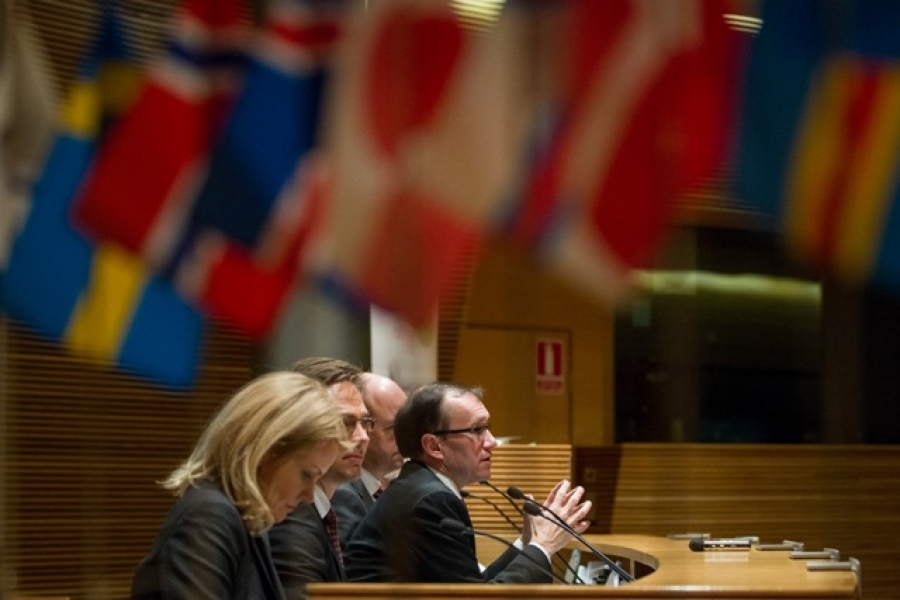The prime ministers of the Baltic States met with their Nordic colleagues in Helsinki the night before the summit opened. As a group, the NB8 prime ministers discussed the economic crisis, energy cooperation and the situation in Syria.
Closer cooperation on foreign and defence policy
Although the central theme of the summit was the challenges faced by and future of the welfare state model of the Nordic countries, prospects for closer cooperation on foreign and defence policy became one of the most widely discussed issues at the event. To mark its 60th anniversary, the Nordic Council had commissioned a book on the future of Nordic cooperation from Johan Strang, a researcher with the Centre for Nordic Studies at the University of Helsinki. As a result of his research, Strang proposed that the existing model of cooperation be completely overhauled; that only areas in which partnerships are fruitful be focussed on; that the consensus requirement in decision-making be scrapped; and that foreign and defence policy be included as new areas in cooperation.
Norwegian representative Marit Nybakk, who was elected the new president of the Nordic Council at the summit, said that she was hoping to see more cooperation in the coming year on defence policy and in reacting to emergency situations. "I'll also be continuing in my efforts to remove border obstacles," she said, "and not only on the labour market, but in education, too."
The Nordic Council is a cooperative body of parliamentary representatives of the Nordic countries. The governments of the Nordic countries also work together through the Nordic Council of Ministers. The council has had offices in Tallinn, Riga and Vilnius since 1991 and since then has also opened offices in the Russian cities of St Petersburg and Kaliningrad.
Green economy
Many ministers from the Nordic countries also meet as part of the sessions of the Nordic Council. Among those who met in Helsinki were the ministers of the environment of the Nordic countries, who underscored the importance of the green economy – an area in which there is enormous potential for development.
The ministers promised to show more support for the development and promotion of the Nordic ecolabel (the Swan) in order to foster the green economy. They also adopted the Nordic Environmental Action Plan 2013-2018, whose main themes are the development of the green community, biological diversity, dangerous chemicals and climate and air quality.
A new initiative designed to encourage a more environmentally friendly society is New Nordic Fashion, whose key words include shared use, fashion education and investing in new export opportunities. The Nordic fashion industry must be ethical and environmentally friendly. Behind the undertaking is the Nordic Fashion Association, which is led by NICE or Nordic Initiative Clean and Ethical. NICE has come into contact with a number of Estonian fashion designers since the Tallinn office of the Nordic Council of Ministers launched the Nordic Look project in 2011.
The development of sustainable fashion has now reached the table of Nordic politicians, with the Nordic Council recommending that the Nordic Council of Ministers support the sustainable development and education of fashion designers, buyers, companies and more. The council has also recommended setting up a joint system for the shared use of textiles and clothing.
More news and information about the Nordic summit can be found here.

